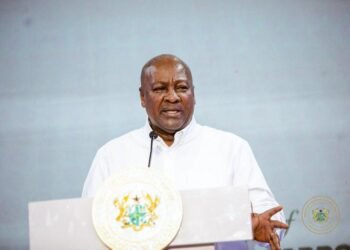There are many challenges confronting the country which needs to be addressed appropriately in the long run to avert further crisis.
As Ghana is racing against time to get the IMF to release the second tranche of $600 million, there’s a lot more pressure to also examine critically the impact of certain internal measures to help revive the country.
Taxes, in its current form, has caused some unpalatable reaction from Ghanaians, especially businesses who feel compelled to cough up numerous taxes, all in a bid to satisfy government’s desires.
Despite registering their displeasure on the matter, with particularly associations like the Ghana Union of Traders Association, Importers and Exporters Association Ghana, FABAG, and a host of other institutions and indigenous businesses feeling the impact of the tax imposition, it hasn’t yielded much results with government vouching for its relevance.
The minority in parliament has over the period, equally been up in arms over the incessant tax impositions by government, further entrenching the dire consequences.
Also, its stance on taxes, especially in relation to government paints a picture of an unyielding government, refusing to heed advice and change its ways.
Basically, until someone comes up with a better idea, taxation is the only practical means of raising the revenue to finance government spending on the goods and services that most of the people demand.
Setting up an efficient and fair tax system is, however, far from simple, particularly for developing countries such as Ghana that want to become integrated in the international economy.
Nonetheless, there is the need for the country to exercise discretion in imposing taxes.
Government’s ploy to tax Ghanaians more exposed
Minority leader, Cassiel Ato Forson, has launched another scathing review of government’s posture on taxes, revealing that government has an “insatiable appetite for taxes”.
He contended that the Akufo-Addo/Bawumia government is imposing 20% tax on “akpeteshie”, as they have run out of ideas.
Moreover, he predicted that petrol and diesel vehicle owners should also expect to pay a new annual tax of GHS100 per vehicle on all petrol and diesel cars.
“This tax will be imposed on all trotros, aboboyaas, okadas, taxis, commercial buses, trucks, ambulances, construction and heavy-duty vehicles, water tankers, private cars, etc. Once your vehicle is powered by petrol or diesel, the government is imposing this tax on you.”
Cassiel Ato Forson
According to the government, this policy is aimed at promoting the use of cleaner/more eco-friendly sources of energy such as electric vehicles. As such, companies will also pay be GHc100 per tonne of carbon dioxide emission.
Advocacy on compliance with tax imposition, and also the necessity to expand the tax net to include other groups and sectors of the country’s economy has been heavily touted, albeit nothing seems to have been done about it.
In light of this, government’s move to in any way increase taxes payable increases the cost of doing business and has a negative impact on a taxpayer’s cashflow.
Meanwhile, a fundamental consideration of the country’s tax policy could also help in minimizing the tax burden on few Ghanaians paying it.
The IMF reckoned that it is difficult to create an efficient tax administration without a well-educated and well-trained staff, when money is lacking to pay good wages to tax officials and to computerize the operation (or even to provide efficient telephone and mail services), and when taxpayers have limited ability to keep accounts.
As a result, governments often take the path of least resistance, developing tax systems that allow them to exploit whatever options are available rather than establishing rational, modern, and efficient tax systems.
Moreover, it suggested that market forces are increasingly important in allocating resources, as such, the design of the tax system should be as neutral as possible so as to minimize interference in the allocation process.
Going forward, Ghana’s tax system should also have simple and transparent administrative procedures so that it is clear if the system is not being enforced as designed.
READ ALSO: UAE Commits $30 Million To Ghana’s Forest Sector Resilient Country Package























